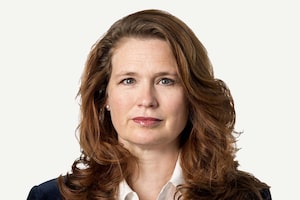Good morning. Wendy Cox in Vancouver this morning.
At an unrelated news conference Friday, B.C. Premier John Horgan relished a question about whether the federal NDP consulted with his government before this week’s deal between the Liberals and the New Democrats was announced.
The supply-and-confidence agreement announced last Tuesday significantly mirrors the deal struck between BC’s NDP and Greens in 2017, which allowed the provincial NDP to nudge the Liberals out of a most-tenuous minority grip on power.
The B.C. deal did not mean a coalition government. Instead, the Greens agreed to support the NDP on confidence bills, such as the budget, in exchange for a close working relationship and some movement on B.C. Green priorities.
Likewise, the federal deal means that the NDP will prop up the minority Liberal government until the next election in 2025. In exchange, the NDP has a commitment for progress on some of its key policies, such as a dental-care plan for lower and middle-income Canadians and work toward universal pharmacare.
“I did have that conversation with the Prime Minister as well as with Jagmeet Singh,” Mr. Horgan said when asked if he had been consulted.
“What Canadians want is for their elected representatives, wherever they come from, whatever their political strips, to roll up their sleeves and work for us.”
Mr. Horgan’s partner in the 2017 agreement, Andrew Weaver, is equally effusive about the precedent set in B.C.
“After several face-to-face negotiations directly with Mr. Horgan and his eventual deputy and finance minister, Carole James, it became clear that if we focused on what we agreed upon, rather than what we disagreed upon, the province’s NDP and Greens could accomplish a lot together,” Mr. Weaver writes in a Globe op-ed.
The enthusiasm of the two is not surprising: Things worked out rather well for Mr. Horgan’s NDP. And if they didn’t work out so well for the Greens, Mr. Weaver had already retired as leader and had publicly cut ties with his two caucus colleagues.
Mr. Horgan and Mr. Weaver didn’t like each other much before and during the 2017 campaign.
“They threw everything at us,” Jillian Oliver, who was the Greens’ press secretary then, said after the election. The level of vitriol from people she regarded as fellow progressives was disturbing: “They did not seem to have a bottom to the tactics they were willing to use.”
But Mr. Horgan managed to woo Mr. Weaver into the agreement and the pair’s outlook toward one another quickly was labelled a bromance.
Mr. Weaver notes that the two parties were able to work together to crack down on political donations, to move toward universal daycare and passed the UN Declaration on the Rights of Indigenous Peoples. All were initiatives that both parties had highlighted in their campaigns when they were still enemies.
But when Mr. Weaver announced his retirement, the Premier turned his back on the deal and triggered an opportunistic election in October 2020, a full year before the agreement pledged.
Mr. Horgan was riding high in the polls after competently stickhandling – at least relative to other provinces – the first wave of the pandemic. The Liberals were demoralized and in disarray, having lost government after 16 years and with a new cerebral leader who struggled to connect with voters.
New Green Leader Sonia Fursteneau was thrust into an election just weeks after taking on the job and the NDP campaigned against her in her own riding, including Mr. Horgan himself: The niceties of the relationship with Mr. Weaver didn’t transfer to Mr. Weaver’s successor.
In fact, Mr. Horgan’s success at nurturing that relationship was so complete that Mr. Weaver himself trolled his former caucus colleagues on Twitter that spring.
When the votes were counted, Mr. Horgan had a comfortable majority. Liberal Leader Andrew Wilkinson resigned. And the Greens were reduced from three seats to two. The Green’s share of the popular vote was cut to 15 per cent from 16.8 per cent in 2017.
A survey this past February by long-time B.C. pollster Mario Canseco put the Greens at a 13-per-cent approval rating.
This is the weekly Western Canada newsletter written by B.C. Editor Wendy Cox and Alberta Bureau Chief James Keller. If you’re reading this on the web, or it was forwarded to you from someone else, you can sign up for it and all Globe newsletters here.
 Wendy Cox
Wendy Cox James Keller
James Keller